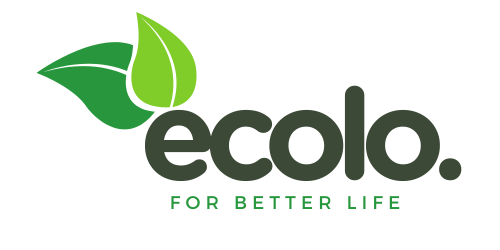The concept of sustainable living has been in our country and culture since primitive era. Using steel containers for storage, riding bicycles to travel shorter distances and creating fertilizers organically are some common examples that we all have seen in almost all houses. A lifestyle that attempted to reduce an individual’s and society’s use of earth’s natural resources and personal resources was something that was an involuntary action in the past.

However, with the rising economic complexities; people got so occupied in creating a better living for themselves that in this journey, they somehow abandoned the concept of an ‘eco-friendly living’. Directing complete responsibility of preserving the environment was left to local and national bodies of the country. And till date we have been limiting this super critical survival obligation in the hands of the Government alone.
Of course, it is an undeniable reality that the weakest link for a sustainable development and eco-friendly living has resulted due to poor Implementation of policies and lack of enforcement by higher bodies. But if every citizen wakes up and starts practicing an eco-friendly sustainable lifestyle, we may be able to make a decent step ahead to save our future generation.
Many environmentalists and ecologists’ view that the time has arrived to create a civil society movement to safeguard the future. Gurgugram’s ‘Citizens For Clean Air’, a voluntary group has pooled in common people from different strata with a united purpose of promoting an eco-friendly living. As a group, they have been dedicatedly putting pressure on local and civic bodies to get going with the implementation of governmental eco-friendly policies from time to time. Ruchika Sethi Takkar, the founder of this citizen’s forum has got several RWA representatives, social sector experts, scientists, medical practitioners and early adopters of eco-sustainable lifestyles under one roof. They practice active citizenry as a way of life and elicit support from the group to mount pressure on any civic and environmental violations that they spot in and around the city.
For a much better cause and reasons that will affect all of us, let us all join hands to make some effort by promoting eco-sustainable living. To start with, adopt some very basic and simple changes in your lifestyles. Sharing practical insights through these simple daily decisions that we can take up easily.
- Decrease the use of tissue paper. Go traditional by using handkerchief instead of tissues:
The tissue paper industry in India is growing at an average rate of 20-25% annually. At present consumption in the tissue paper industry is estimated approx 1.25lakh tonnes per year. Imagine the numbers of trees that will be sacrificed for the sake of human consumption of something that can be easily replaced by just changing one simple habit.
- Switch from non-biodegradable plastic toothbrushes to Biodegradable toothbrushes:
By using 1 toothbrush a year on an average, total amount of used toothbrushes a year roughly translates to 1.38 billion in India. If a person using approximately 3-4 toothbrushes a year thinks that his actions will not have any detrimental environmental consequences; imagine how much pile of unperishable item he is adding to landfills.
- Conserving water must be inculcated as a habit:
Estimates shows that around five billion people could be facing water shortage by 2050. An average RO purifier wastes approximately 3 litres of water for every 1 litre of purified water which implies that 75% of water comes out as waste. Make it a priority to recycle the waste water for cleaning purposes.
- Carry your own bag and bottle whenever you step outside, stop the habit of buying plastic bottles.
Use bar soaps instead of fancy liquid body wash in plastic bottles. Cut 80-90% use of multi laminated packaging or multi-layered plastic. If possible, buy in bulk quantities as it saves more single-use plastic usage. Bring your own Cup or switch to reusable coffee cups. Replace all plastic containers with steel or glass containers in your kitchen. Plastic production is set to quadruple by 2050; in order to reduce it embrace DIY methods to re-use plastic bottles that you already have at home.
In 2019, the global plastic bottles and containers market was valued at USD 166. 78 billion. This is expected to reach a value of USD 224. 97 billion by 2025 with a CAGR of 6. It is estimated that India generates 9.46 million tones of plastic waste every year which is about 946,000 truckloads at 10 tones a truck. And 40% of this waste remains uncollected. Figures states that between 400,000 and 1 million people are killed each year in low and middle-income countries as a consequence of mismanaged waste.
These are extremely easy ways that can be immediately put in use by all of us. We very well are aware of these methods; however, implementing such changes is still a far-fetched goal. It is time that we get united as fellow citizens by recognizing the importance of building a better eco-sustainable future not for us but for our kids and coming generation who may suffer by our inactions. Spread awareness, encourage more participation and be the change you want to see in the world.
REFFERENCE FROM - Times Of India News

